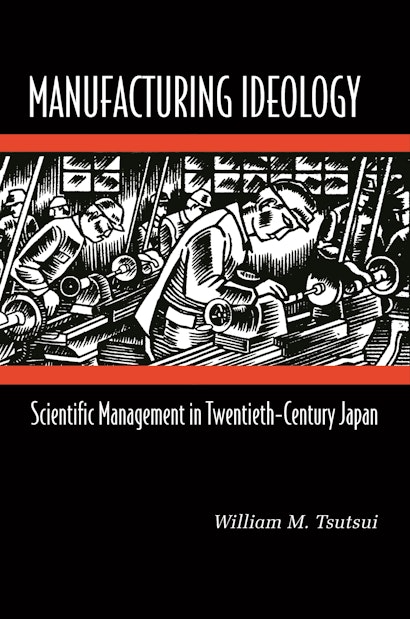Manufacturing Ideology: Scientific Management in Twentieth-Century Japan


Paperback
- Price:
- $55.00/£45.00
- ISBN:
- Published:
- Apr 1, 2001
- Copyright:
- 1998
- Pages:
- 296
- Size:
- 6 x 9.25 in.
- 2 line illus.
- Main_subject:
- Economics & Finance
ebook
Japanese industry is the envy of the world for its efficient and humane management practices. Yet, as William Tsutsui argues, the origins and implications of “Japanese-style management” are poorly understood. Contrary to widespread belief, Japan’s acclaimed strategies are not particularly novel or even especially Japanese.
Tsutsui traces the roots of these practices to Scientific Management, or Taylorism, an American concept that arrived in Japan at the turn of the century. During subsequent decades, this imported model was embraced—and ultimately transformed—in Japan’s industrial workshops. Imitation gave rise to innovation as Japanese managers sought a “revised” Taylorism that combined mechanistic efficiency with respect for the humanity of labor.
Tsutsui’s groundbreaking study charts Taylorism’s Japanese incarnation, from the “efficiency movement” of the 1920s, through Depression-era “rationalization” and wartime mobilization, up to postwar “productivity” drives and quality-control campaigns. Taylorism became more than a management tool; its spread beyond the factory was a potent intellectual template in debates over economic growth, social policy, and political authority in modern Japan.
Tsutsui’s historical and comparative perspectives reveal the centrality of Japanese Taylorism to ongoing discussions of Japan’s government-industry relations and the evolution of Fordist mass production. He compels us to rethink what implications Japanese-style management has for Western industries, as well as the future of Japan itself.
Awards and Recognition
- Winner of the 2000 John Whitney Hall Book Prize, Northeast Asia Council of the Association for Asian Studies